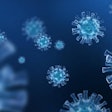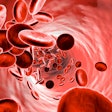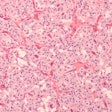
Natera is highlighting a recent study that confirms a strong performance of its Prospera donor-derived cell-free DNA (dd-cfDNA) test in assessing rejection in kidney transplant patients.
Researchers assessed the clinical utility of Prospera in an analysis of biopsy data contemporaneous to dd-cfDNA results in 879 patients at 33 participating clinics. They found 18 of 28 patients with biopsy-matched high-risk dd-cfDNA test results were confirmed to have active rejection, demonstrating a reported 64% positive predictive value, according to a study published in the December issue of Transplantation Proceedings.
"The data indicate that incorporating dd-cfDNA testing into practice may improve physician decision making regarding renal allograft recipients," wrote lead author Dr. Yasir Qazi, director of the kidney-pancreas transplant outreach and fellowship program at the University of Southern California.
The Prospera test leverages Natera's core single-nucleotide-based massively multiplexed PCR technology to identify allograft rejection noninvasively and with high precision and accuracy, without the need for prior donor or recipient genotyping, the company said. The test works by measuring the fraction of dd-cfDNA in the recipient's blood.
The study adds to a growing body of evidence supporting Prospera dd-cfDNA testing, which has not been cleared or approved by the U.S. Food and Drug Administration, Natera noted.



















